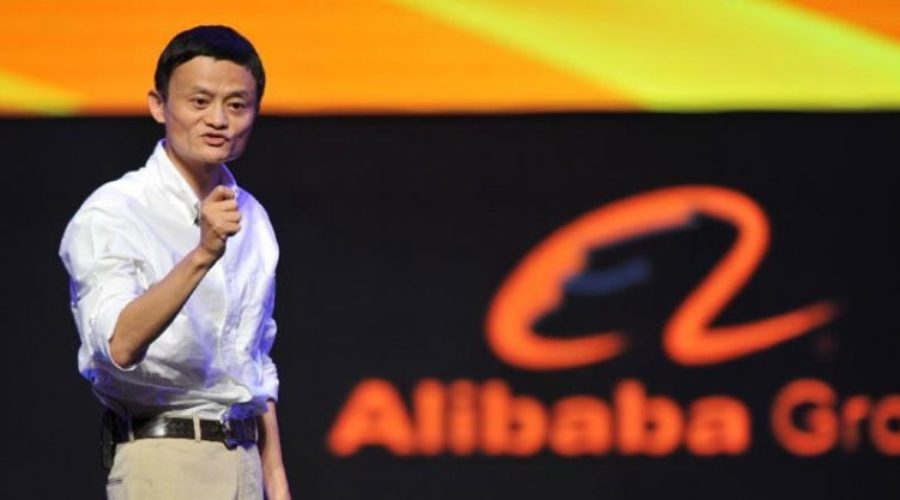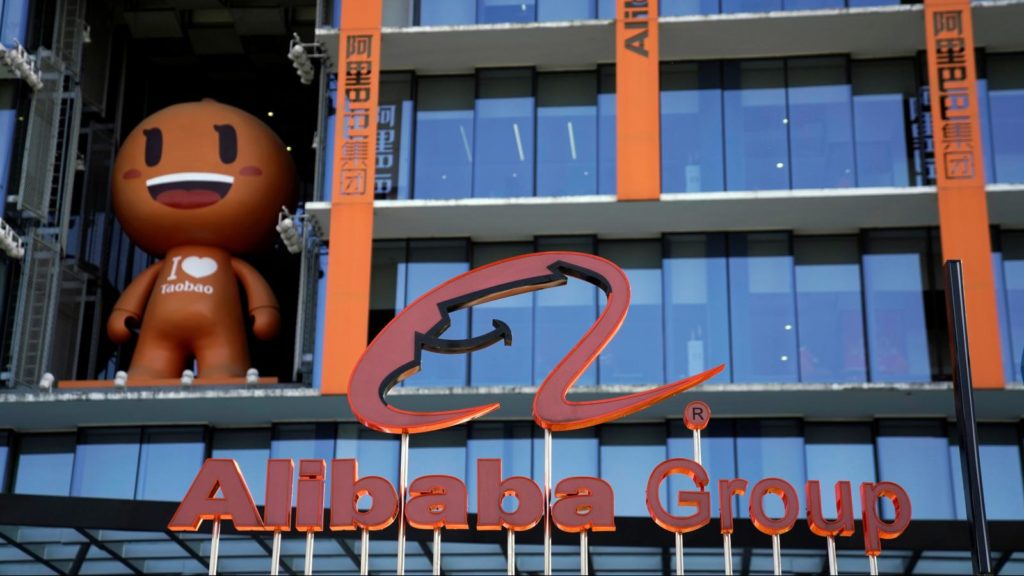The world began to notice it some time ago when a Chinese e-commerce company created the world’s largest Initial Public Offering (IPO) in September 2014, priced at USD 25 billion. Jack Ma, the company’s billionaire chairman, started the company in 1999 in his apartment in China as Alibaba.com.
Today, Alibaba Group is a set of multinational Chinese technology companies that specializes in e-commerce, retail, internet, and technology. It is the world’s largest e-commerce service, with 454 million active buyers using its portals, making 57 million orders a day, turning into sales of 5.6 billion dollars in Q1 2017 alone–a rise of 60 percent year-on-year.
The website was initially developed as a B2B forum to link Chinese producers with buyers worldwide. Today, the consumer-to-consumer trading platform at the company, Taobao, features nearly a billion products. While connecting millions of buyers and sellers around the world, it helps small companies meet their procurement needs for suppliers, exporters, and wholesalers.
The company has become synonymous with e-commerce in China, and the group of websites that it owns and operates accounts for more than 56% of the USD 198 billion online retail markets in China in 2016.
Background
In 1999, Jack Ma founded the company, leading 18 other partners and also the first employees at the company. He had an entrepreneurial instinct and hence, previously formed several businesses, one of which was a translation business, and the other named China Sites, which enabled Chinese companies to scour customers globally. He created Alibaba four years after China Pages fell flat.

The company’s growth, while attributable to Ma’s hard work and vision, is also driven equally by his distinct personality as well as his captivating speaking style and willingness to engage and push employees. The company reached sustainability in 2 years of birth.
Taobao, the most prominent online exchange site in the world, was created in 2003. On its 10th anniversary, the company launched Alibaba Cloud Computing, allowing its entry into the next generation of computing services.
The story behind the name, Alibaba
Jack Ma thought of the company’s name while sitting in a café in San Francisco. The name of the business came from the character Ali Baba from the Middle Eastern folk tale series ‘One Thousand and One Nights’ because of its timeless charm, as confirmed by the short market analysis done by the founder to know the popularity of the folk tale. He later explained:
“One day I was in San Francisco in a coffee shop, and I was thinking Alibaba is a good name. And then a waitress came, and I said, “Do you know about Alibaba?” And she said yes. I said, “What do you know about him?”, and she said, “Open Sesame.” And I said, “Yes, this is the name!” Then I went on to the street and found 30 people and asked them, “Do you know Alibaba?” People from India, people from Germany, and people from Tokyo and China … they all knew about Alibaba. Alibaba – open sesame.
Alibaba is a kind, smart business person, and he helped the village. So … easy to spell, and globally known. Alibaba opens sesame for small- to medium-sized companies. We also registered the name “Alimama,” in case someone wants to marry us!”
The Brand Ideology
Alibaba Group is the “company of everything”. From the very beginning, the founder’s goal has been to make a business so diverse that a customer won’t have to look anywhere else. With the support of strategic alliances, Mergers & Acquisitions, and unrelenting guidance from its founder, the business has been able to evolve and continuously expand to create an organization that genuinely serves customers.
The ideology of the company is – first customers, second employees, and third shareholders. In several company meetings and media events, Mr. Ma reiterates and re-emphasizes this principle and is pursued with unwavering emphasis. This philosophy is closely related to the ideology of the business.
It is also driven by a constant source of evolution of the capabilities and innovation in its offerings. This is the hallmark of any effective digital brand with numerous assets. Within the corporate model of Alibaba, the idea of a “one-stop-shop” is deeply incorporated.
Alibaba brand architecture and marketing strategy
The portfolio of digital brands is structured around the concept of hybrid label architecture. These are the critical facets of Alibaba’s overall marketing strategy in its significant development period.
The properties can be categorized into the following brand portfolio groups:
Master design of the company: Alibaba group, the master brand, owes all products of the product family its value, promise, and ideology.
The architecture of a range of products: The product brand portfolio has been created to communicate a distinct value proposition to customers. Brand labels are of competitive significance over the long run and have substantial media budgets that propel them. Taobao Marketplace, China’s answer to eBay, is the most important product brand in the portfolio.
In 2014, the introduction of Alimama, Google AdSense, including Alibaba’s personalized advertisement platform and Alibaba Pictures, a film and TV production service, further expanded this policy.
Diversify through master brand resources: Alibaba’s reputation as a brand name and the fact that it has a clear definition so that everyone can conveniently understand it, give it a global reach.
Strengthen the popularity of the company labels locally :Alibaba does not assume the prefix “Ali” is added to any product or service, it introduces. The company’s growth is attributed to a tactic dubbed “Act Local, Think Global.”
The leading enterprises of Alibaba at a glance
Chinese Retail Marketplaces
- Taobao Marketplace
- Tmall
- Rural Taobao
Cross-Border and Global Marketplace
- AliExpress
- Tmall Global
- Lazada
Wholesale Commerce
- 1688.com (China)
- Alibaba.com (global)
Digital Media and Entertainment*
- Youku Tudou (online video)
- Alibaba Pictures
- Alibaba Music
- Alibaba Sports
- UC (mobile browser)
Other Services*
- AutoNavi (mapping and navigation)
- Koubei (local services)
- Ele.me (delivery)
Finance*
- Ant Financial (includes Alipay)
- MYbank
Logistics*
- Cainiao Network
Cloud Computing*
- Alibaba Cloud
Challenges Ahead
Future technological threats
The problems are not just limited to foreign markets but are also arising in China’s highly competitive environment, which was the growth engine for Alibaba.
Tackling the challenge of Made in China: Country of origin is very important, and globalizing brands sometimes neglect the value of the heritage and culture. Global brand impressions are tied to the country of origin. Alibaba must dedicate itself to excellent quality, durability, transparency, and good governance in all facets of business and operations.
Also Read: The Superiority Of Amazon Logistics & Supply Chain
Genuinity of products sold on the platform : This is one of the most important issues impacting Alibaba’s equity with the outside world. China, which has had a questionable history as the hotbed of fake goods and fake brand names, is still shrugging off the picture. Fake product lists, questionable vendors and a persistent suspicion have troubled Alibaba’s Taobao sites (for B2C trade) and other similar sites for B2B trading.
Strengthening rivalry in China: Alibaba expanded and took on a different form, China grew into a market with a new range of challenges as well. As well, Chinese firms are gradually working to take on Alibaba.
In China, Alibaba’s main rival is Tencent, the technology company that controls the highly popular instant messaging services QQ and WeChat.
Lack of brand awareness outside China: It could overtake eBay in China, but it doesn’t have the market visibility and equity that eBay and Amazon enjoy in global markets. That will be a big hurdle for Alibaba to address as it aims to grow into global markets.
Conclusion: Alibaba tremendous market potential
It is one of the largest e-commerce companies in the world that understands the local buyers and sellers better than the rivals in the West. eBay, Amazon, Newegg, all eye on e-commerce, but none of them hit a significant scale in the market as Alibaba.
But it has to devote ample capital and managerial focus on executing policies and addressing the resulting negative expectations and stiff competitiveness. The company has the benefit of being born online, so its transition into a responsible company is inevitable. It’s time for the organization to grasp this modern business philosophy and apply it.
To read more content like this, Subscribe to our Newsletter.

